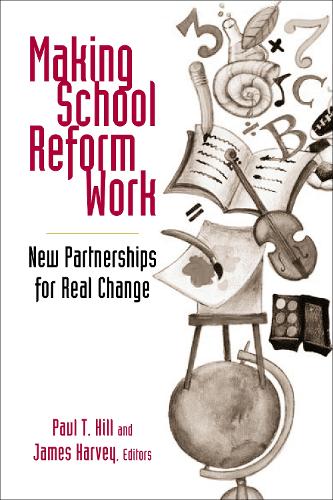
Making School Reform Work: New Partnerships for Real Change
(Paperback)
Publishing Details
Making School Reform Work: New Partnerships for Real Change
By (Author) Paul T. Hill
Edited by James Harvey
Bloomsbury Publishing PLC
Brookings Institution
30th September 2004
United States
Classifications
Tertiary Education
Non Fiction
Ownership and organization of enterprises
379.73
Physical Properties
Paperback
144
Width 153mm, Height 229mm, Spine 10mm
204g
Description
This text identifies roles for foundations and civic groups in defining strategies for big-city school reform and in ensuring that promised changes are implemented. According to the contributors, the current system of public education governance prevents creation of reform strategies that are bold enough to transform a troubled school system. It is also unable to sustain any consistent line of action long enough for it to work. The governance system also leaves critical issues to chance, such as the freedom of schools to select staff, make strategic use of funds and allocate time. The contributors assert that non-governmental institutions can remedy these deficiencies, formulating bold strategies and making sure they are implemented. To accomplish these ends, the authors suggest the establishment of several independent institutions to support the reform of big-city schools.
Reviews
Author Bio
Paul T. Hill is coauthor (with Mary Beth Celio) of Fixing Urban Schools (Brookings, 1998) and (with Christing Campbell and James Harvey) of It Takes a City (Brookings, 2000). He is a nonresident senior fellow at the Brookings Institution and a research professor at the University of Washington's Daniel J. Evans School of Public Affairs. James Harvey is a senior fellow at the Center on Reinventing Public Education, Daniel J. Evans School of Public Affairs, University of Washington. He is also a Seattle-based consultant. A former appointee in the Carter administration, he helped develop the landmark report A Nation at Risk for the National Commission on Excellence in Education.
